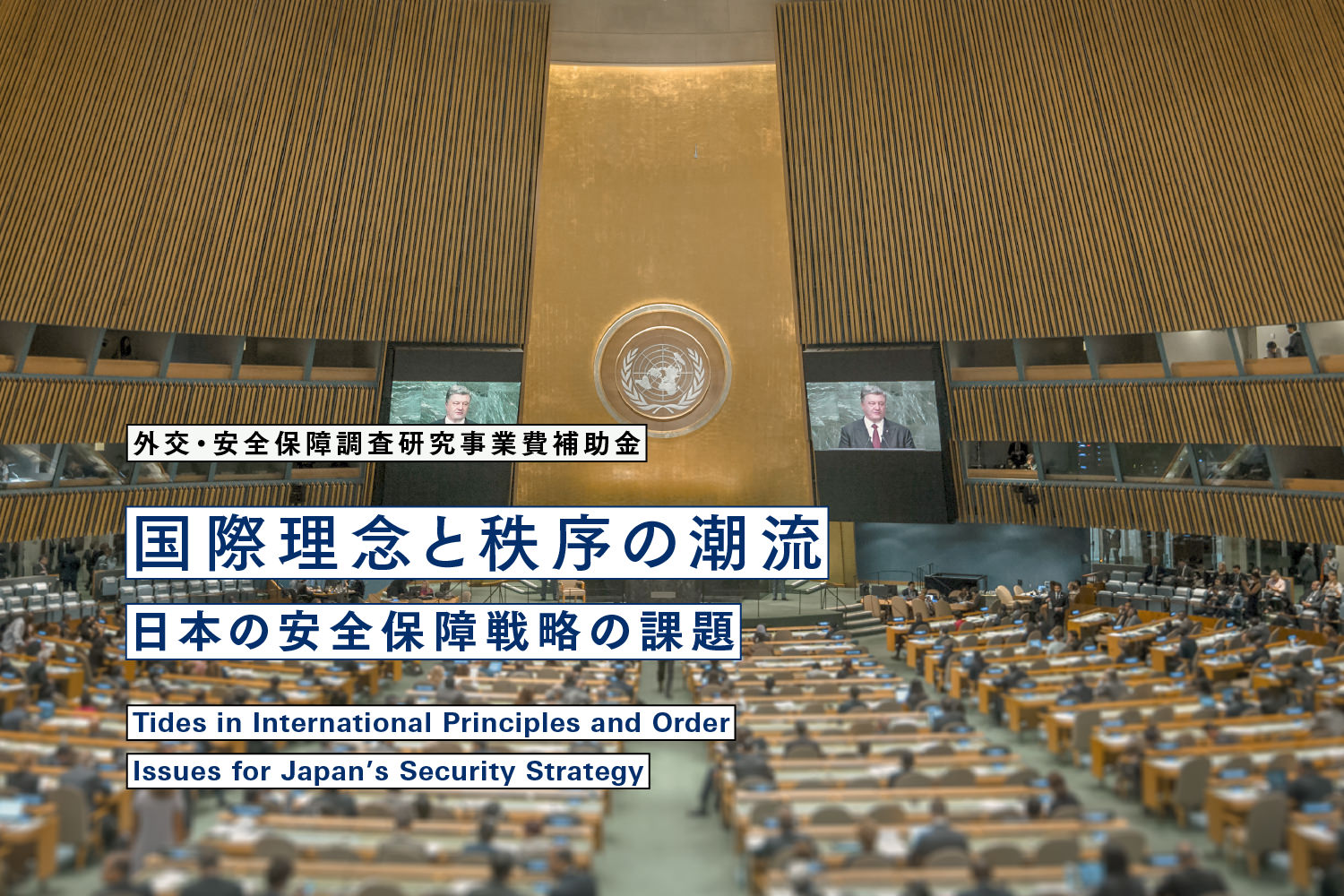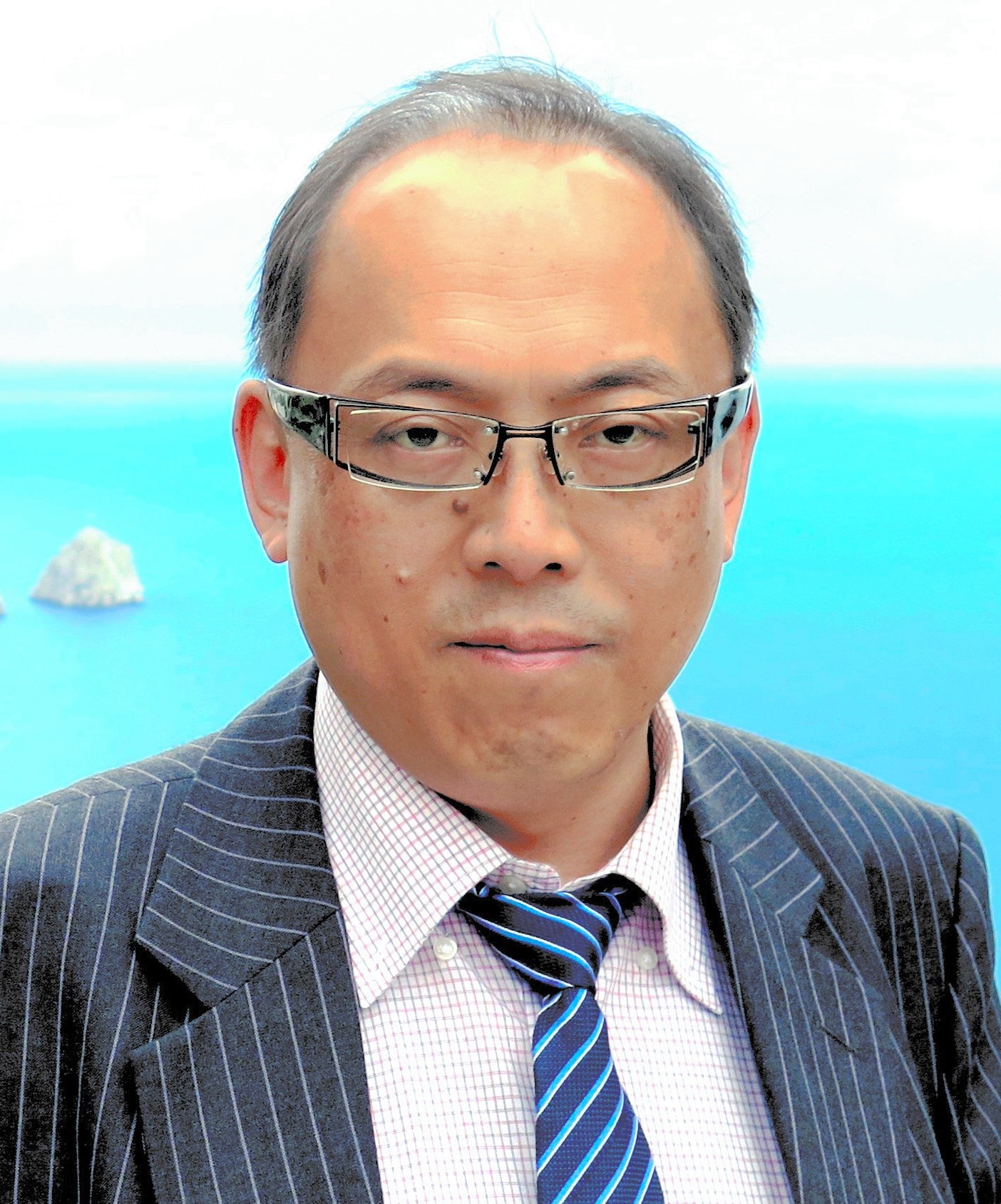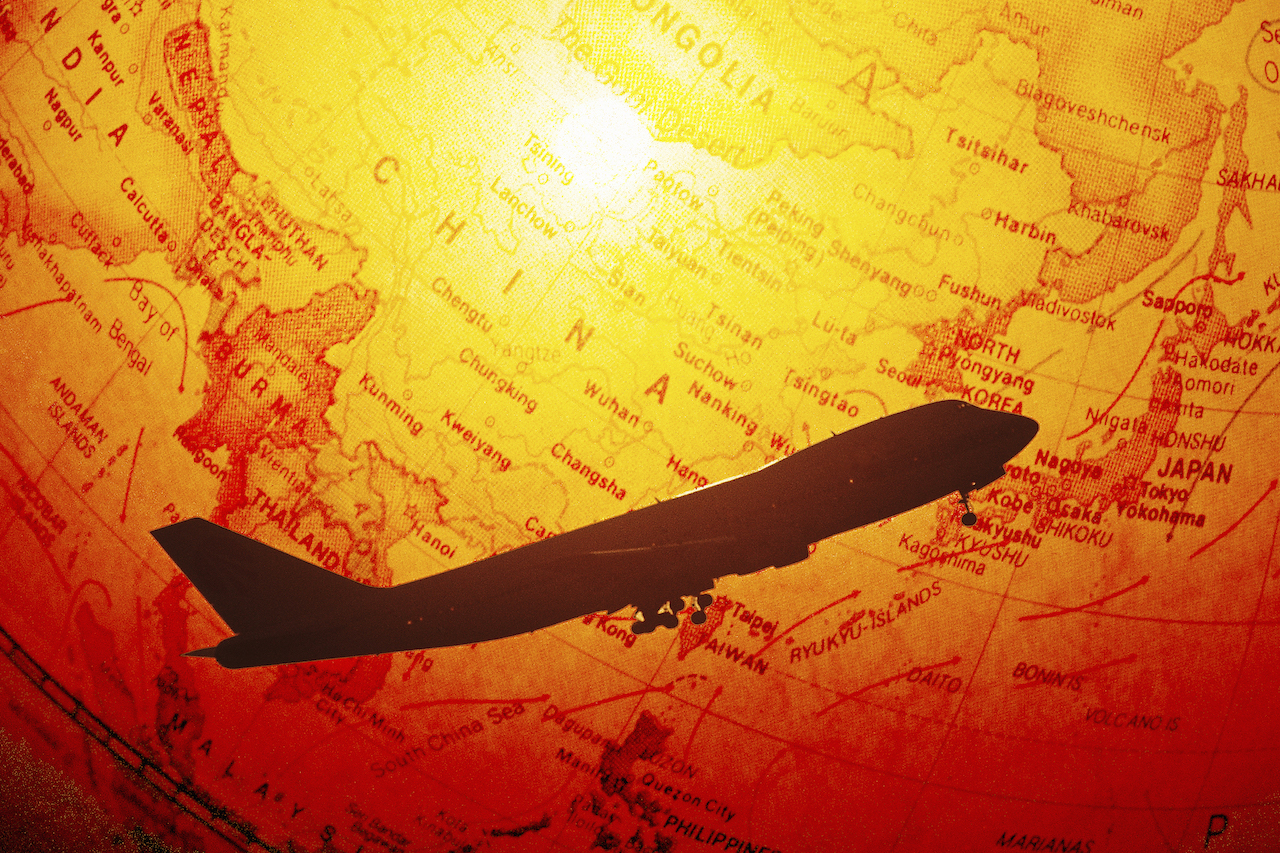
研究会「インド太平洋の安全保障構想」
本国際研究では、国内外の著名な専門家を集い、近年のインド・太平洋における安全保障環境について考えます。特に、防衛情勢やハイブリッド戦争だけでなく、海洋と交通、エネルギー、環境・人間の安全保障、新興技術技術と経済安全保障等、インド太平洋地域における安全保障問題を包括的に考え、我が国としてどう対処するべきかについて、研究報告や政策シミュレーションを通じて分析します。
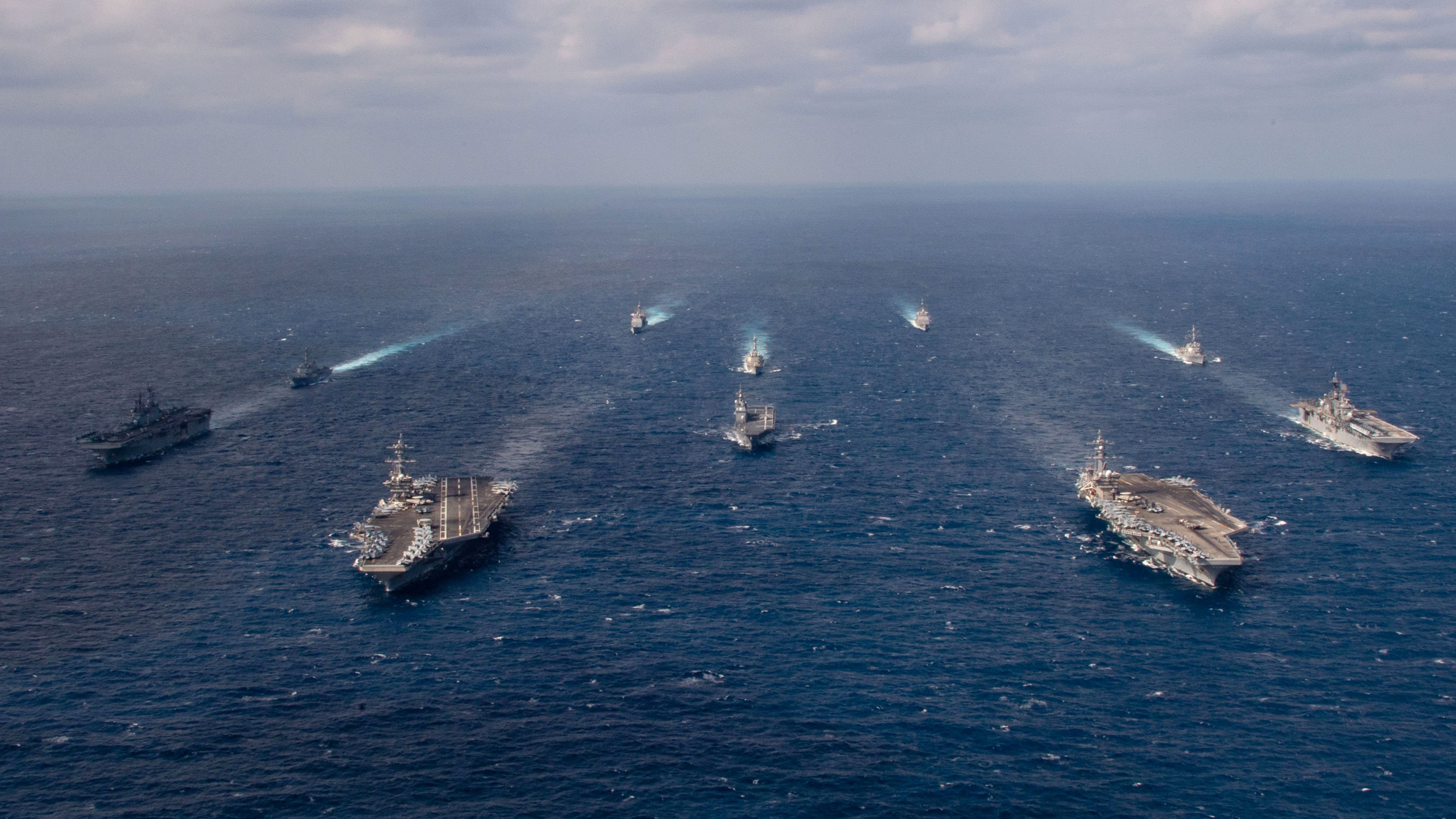
SG2「海洋・交通の安全保障の構想」
国際研究会1「インド太平洋の安全保障構想」は4つのサブグループ(SG)から構成されます。SG2「海洋・交通の安全保障の構想」では、国内外の専門家を集い、人的交流・貿易等において重要である海洋領域と交通システムへの脅威や脆弱性について議論する。特に、自由で開かれたアジア・大洋州の観点から海洋と国際交通システムに焦点を当て、軍やテロ・犯罪組織による脅威だけでなく、非伝統安全保障問題の相互影響、そして「複合一貫輸送システム」から生まれる安全保障問題について、研究報告や制作シミュレーションを通じて分析します。
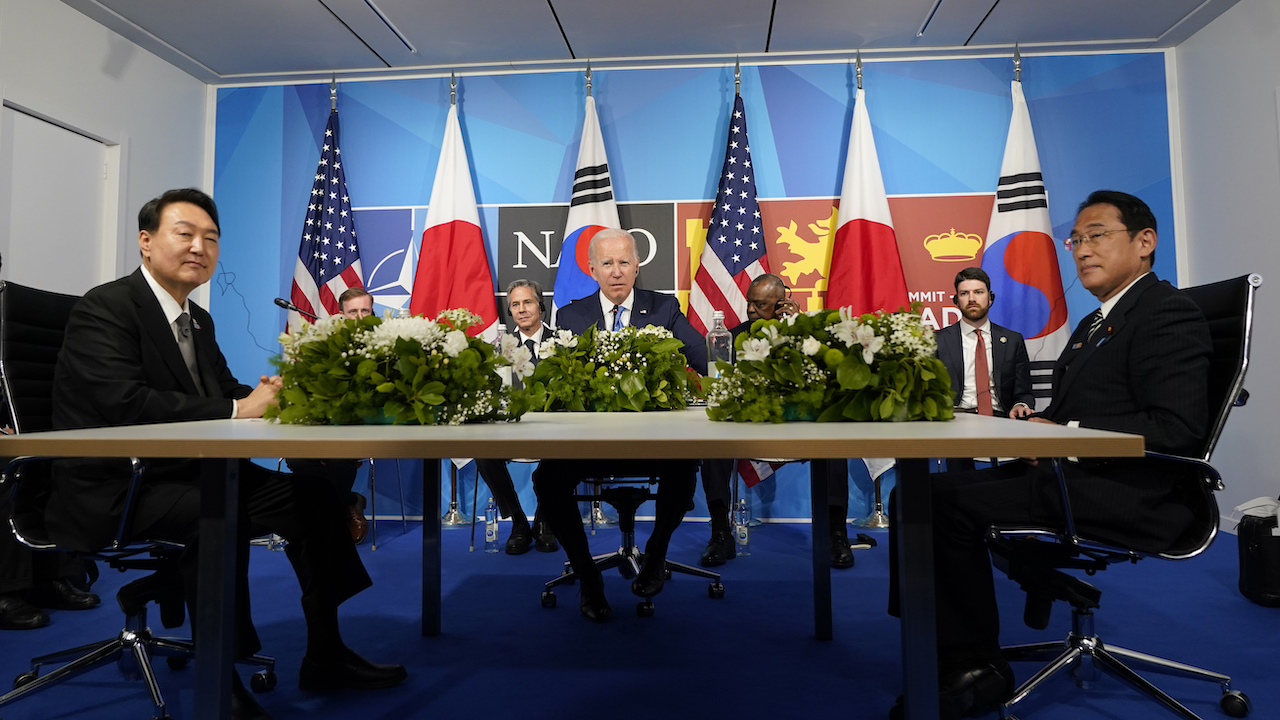
研究会「安全保障協力体制の構想」
本研究会では国内外の専門家を集い、米中間競争の間で、日本が日米関係を基軸にし、如何に多国間安全保障協力に取り組むべきかについて考えます。特に、中国と適切な距離を保ちながらアジア太平洋やNATO諸国と協力して国際秩序の維持、安全保障を確保していく方策を国際的な視座で議論します。
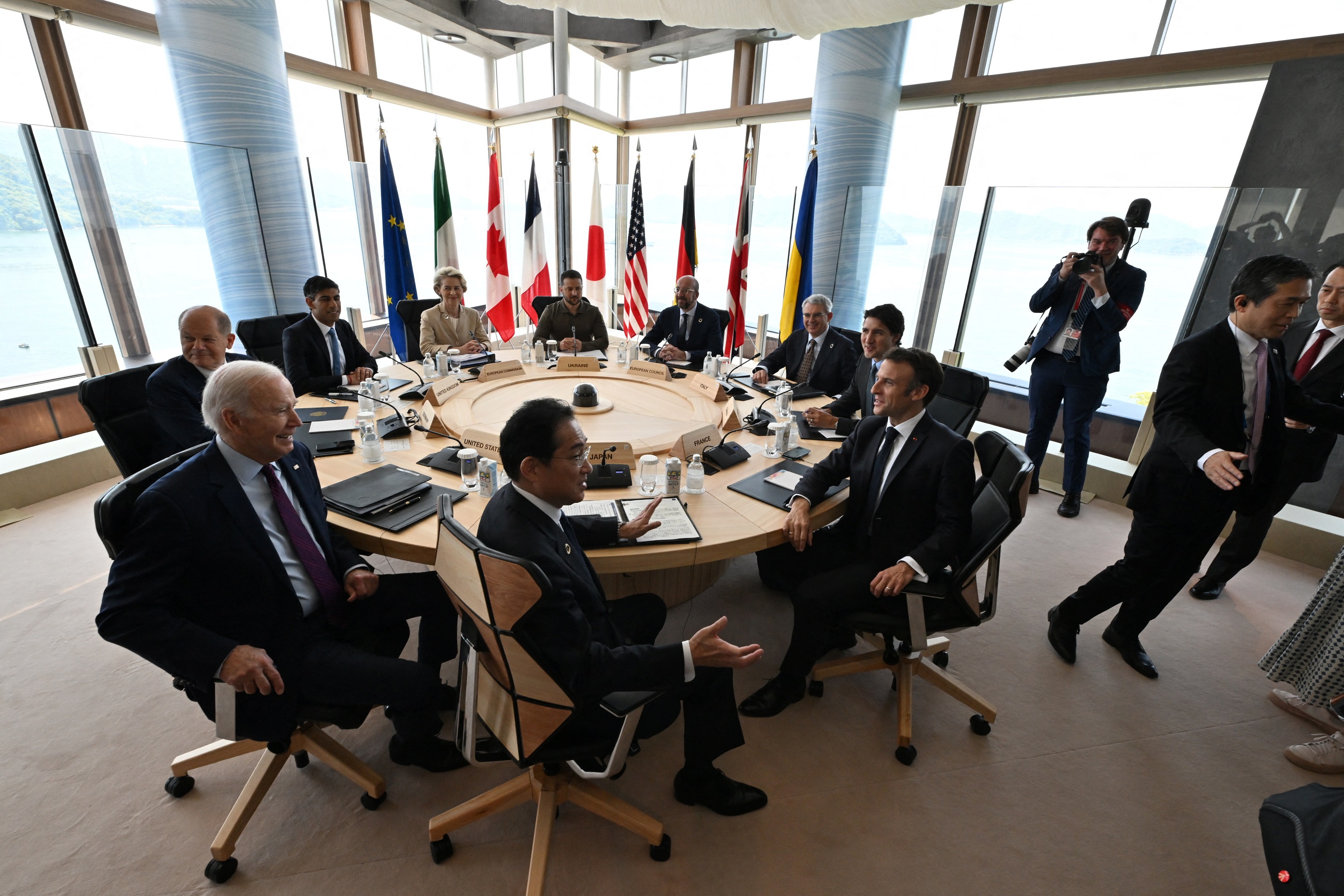
研究会「『西側』の論理の検証と再構築」
本研究会は、「西側」先進国の政治や外交に焦点を当てます。現在、自由、民主主義、基本的人権の尊重、法の支配といった普遍的価値を遵守する先進国・主要国は、内部で政治・社会の動揺、外部からは中国やロシアなどといった権威主義国家からの脅威にさらされています。本研究会は、こうした状況にある先進国がとるべき政策について議論し、発信していきます。
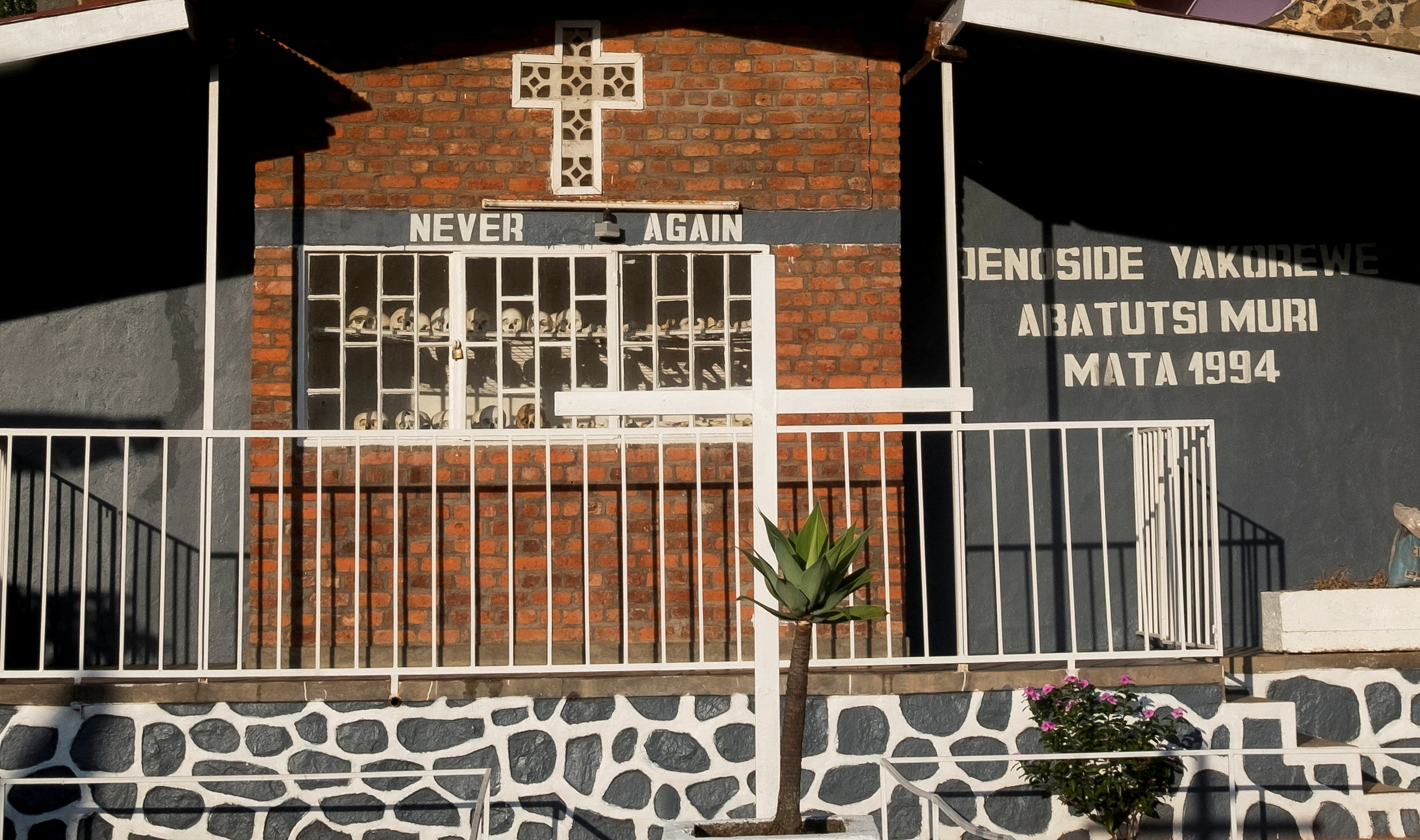
研究会「宗教と国際秩序」
本研究会は、宗教に焦点を当てたアジア各国、ロシア・東欧を含む欧州、北米の地域研究者と日本の現代社会における宗教の研究者により構成されます。国際社会における諸問題を背景にある宗教から理解するとともに、日本の現代社会の価値観について国際的に発信することを目指します。
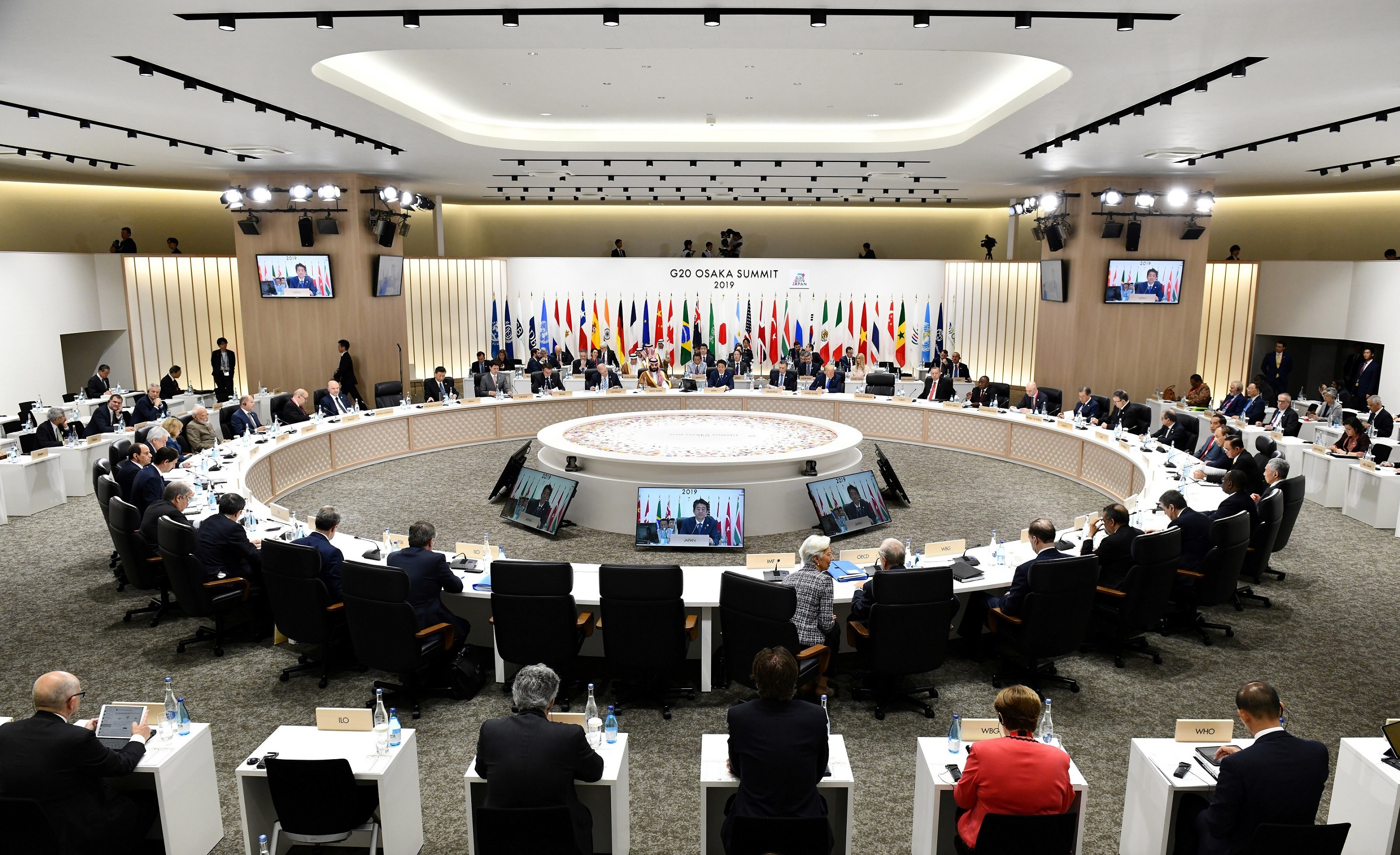
研究会「日本の価値観外交の検証と再構築」
本研究会では、現在の国際情勢のなかで日本外交がどのような役割を果たしていくのかを議論し、発信します。欧米を中心とした主要国・先進国と、中国・ロシアなどといった権威主義国家などが争う「国家間競争」の時代において、日本はどのような思想的な裏付けをもって外交を展開していくべきか。本研究会は、これまでの日本の歴史的なあゆみを考察しながら、日本が世界に対して訴えるべき価値観外交はなにかについて研究します。
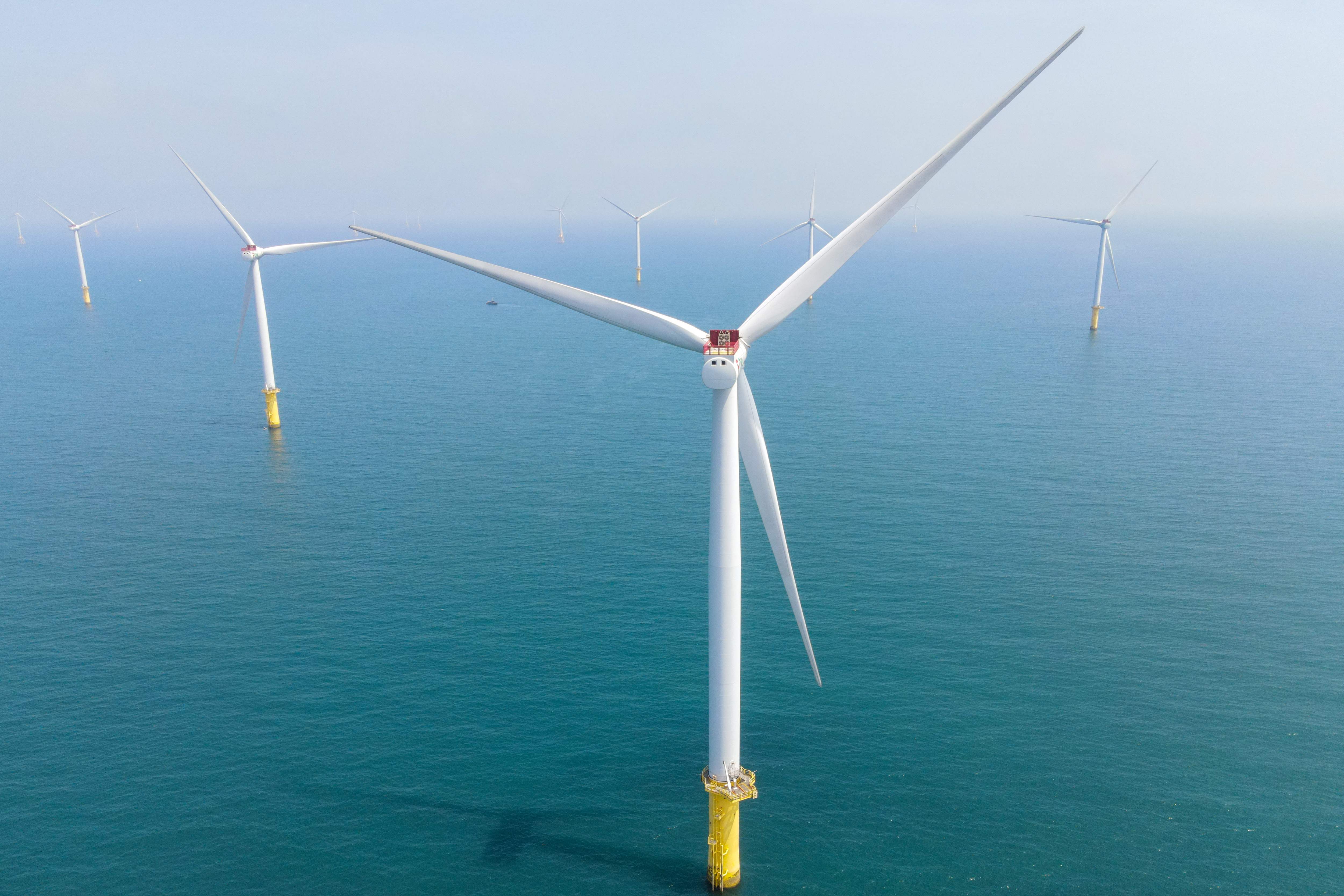
研究会「エネルギー国際秩序における日本の立場」
脱炭素化に向けた技術開発と標準化の競争と、各国・各地域の市場動向、中東・アフリカ情勢やロシア・ウクライナ戦争などの地政学的要因の双方に影響されて形成されるエネルギー国際秩序の中での日本の置かれた条件を把握した上で、エネルギー国際秩序の形成に日本が積極的・主導的に関与していく道筋を考察していきます。
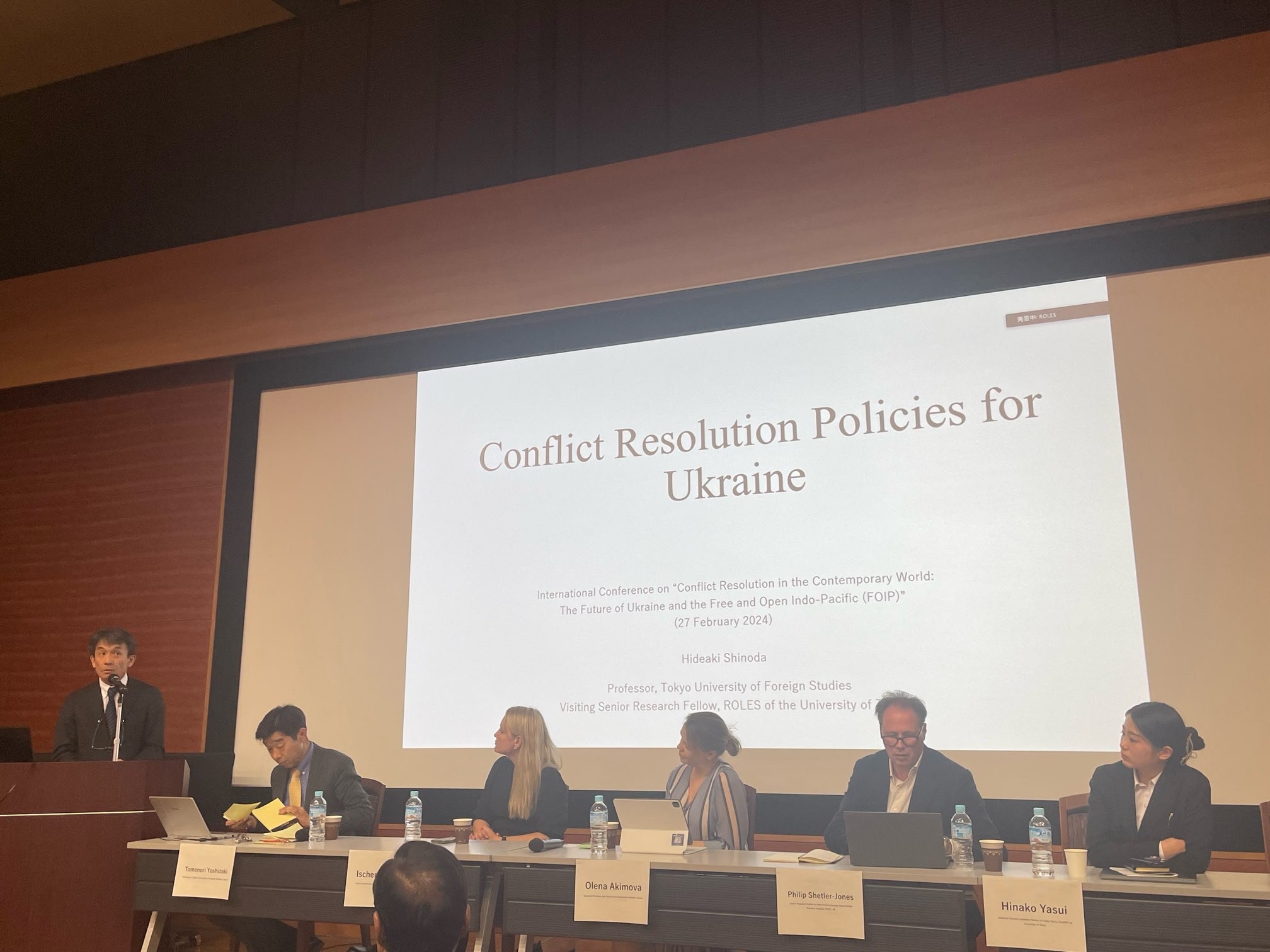
研究会「紛争解決の理論と実践」
趣旨「紛争解決の理論と実践(Theory and Practice of Conflict Resolution: TPCR)」研究会は、現代の世界でのさまざまな武力紛争を調査し、紛争解決の理論と実践の現状を分析・評価し、可能な限り政策的含意のある視座を提示していきます。ヨーロッパ、中東、アジアなどで起こっている武力紛争を対象とする地域横断的な視点を導入します。ユーロ大西洋安全保障とインド太平洋安全保障の関連性を考慮しながら、現代世界の構造的な緊張を検証する国際社会全体を見渡す構造的な視点も発展させていきます。TPCR研究会は、紛争解決と平和構築に貢献する新しい解決策を提案することを目指していきます。この研究会における紛争解決の理論に関する議論には、紛争分析、仲介、国家建設、平和構築などを含めていきます。これらの分野はいずれも、冷戦終結後に大幅に発展しました。その発展は、軍事介入、国際平和活動、開発、人道支援などの紛争解決に関する政策的実行の進展と同時に起こりました。しかし21世紀になって始まった「グローバルな対テロ戦争」などの新しい現象は、武力紛争の様相を変えました。ロシア・ウクライナ戦争やガザ危機を含む現在進行中の武力紛争は、既存の紛争解決理論に新たな視座を加えることの必要性を示しています。近年主流となっている「国際的な国内紛争」型の複雑な武力紛争を分析し、対応策を検討していくためには、既存の仕組みを超えた議論が喚起されなければなりません。このTPCR研究会では、どのような新しい理論的枠組みが、現代の武力紛争の複雑な現実をより適切に捉えていけるのかを検討していきます。国際平和活動によって代表される紛争解決の実践は、急激な変化を遂げています。国連の平和維持活動は重要な手段であり続けていますが、予算と人員が大幅に削減され、21世紀初頭に持っていた重要性を失っています。21世紀の冒頭で教科書的に信奉された国際平和活動の方法は、時代遅れなものとなっています。その一方で、過去30年間で、(準)地域組織や有志連合などを介在させた様々な非国連の平和活動が頻繁に設立されてきました。柔軟なパートナーシップの組み合わせを通じて、紛争解決の活動を国際的な安全保障措置と結びつける必要性が高まっています。TPCR研究グループは、世界の変化する現実に対応した新しい国際平和活動の政策論を見出すことも目指しています。研究グループの最初の主要な焦点は、ウクライナの長期的な再建計画を含む、紛争解決の見通しと可能性にあります。構造的な視点として、インド太平洋とユーロ大西洋の間の関連性を理論化し、これらの地域での新しい紛争解決の政策を探求します。研究グループは、さらに他のアフリカ、中東、南アジア、東アジアの事例について議論するために、少なくとも3年間活動します。活動1. 定期的なマンスリー会合:TPCR研究会は、定期的な月例会合を開催しています。現時点では、主要な定期メンバーがオンラインで参加し、ウクライナに関連する問題に焦点を当てた議論をしています。議論の結果は、公開会議やROLESのコメント、ROLESレビューなどで発表します。
2. 不定期のトピカル会合:不定期に開催されるトピカル会合を通じて、現代の武力紛争や紛争解決政策の事例について議論します。TPCR研究会は、現代世界の事象の変化に応じて、その時々で重要なテーマを決め、内容にそった参加者とともに、議論を深めていきます。議論の結果は、公開会議やROLESのコメント、ROLESレビューなどで発表します。3. 海外でのアドホック会合:海外の機関とのパートナーシップを活用して、海外で会合を催します。TPCR研究会では、特に自由で開かれたインド太平洋(FOIP)と現代世界の構造的な緊張について焦点をあて、同じ関心を持つ海外機関との間で、紛争解決に関連する議論を行います。議論の結果は、公開会議やROLESのコメント、ROLESレビューなどで発表します。論点1. ロシア・ウクライナ戦争の終結の条件は何か。TPCR研究会では、W・ザートマン「成熟」理論などを検討して終結のイメージを模索しながら、ウクライナにとっての紛争解決の条件を理論と政策の両面から検討する。より具体的には、「抑止」の整備の重要性に注目し、それに対して日本などの支援国が提供できる「平和の保証」の仕組みなどに関する政策課題を精査する。2. 現代世界で多発している武力紛争の多くが、「国際的な内戦」と呼ぶべき国際紛争と国内紛争の要素が混在した戦争である。典型例がウクライナやガザにおける戦争だが、その他の武力紛争の事例を見ても、国際紛争と国内紛争のどちらかの性格だけを持っている戦争などはほとんど存在しない。両者の人工的な区別に依拠した紛争解決の理論は、21世紀の現実に対応できない。この問題意識を持ちながら、中東からアフリカにかけての武力紛争多発地帯の武力紛争の各事例を分析していく。それぞれの事例における日本の平和貢献の政策などを通じた関与のあり方も、大きな政策課題になるだろう。3. 現代世界の構造的な対立の構造は、現在の個々の武力紛争に影響を与えているだけでなく、将来の武力紛争の潜在的な原因として存在している。米中の超大国間の競争関係、G7に代表される工業先進国とBRICSに代表される新興国の間の確執、リベラルな国際秩序を標榜する欧米諸国とグローバルサウスが主導する国際秩序の刷新を追求する非欧米諸国の間の構造的対立は、今後さらに深刻化していくことが予測される。TPCR研究会は、日本外交が掲げる「自由で開かれたインド太平洋(FOIP)」の視点を重視しながら、現代世界の構造的対立を分析しつつ、望ましい外交政策の方向性を模索していく。研究会メンバー
・正規メンバー | 所属・肩書き- 篠田英朗(座長) | 東京外国語大学大学院総合国際学研究院教授・東京大学(ROLES)客員上級研究員<ウクライナ共同研究>- 吉崎知典 | 東京外国語大学大学院総合国際学研究院教授- Fedorchenko-Kutuyev Pavlo | Professor at the Department of Social Sciences, Kyiv School of Economics, Adjunct Professor of Sociology and Sociology Department Chair, Igor Sikorsky Kyiv Polytechnic Institute (KPI)- Anna Mykolayivna Ishchenko | Senior Lecturer and Deputy Dean of FSP for international activities, Igor Sikorsky Kyiv Polytechnic Institute (KPI)- Olena Akimova Kasatnika | Docent and Acting Dean of the Faculty of Sociology and Law, Igor Sikorsky Kyiv Polytechnic Institute (KPI)- Iurii Perga | Associate Professor and Vice-Dean for Research and Innovation, Igor Sikorsky Kyiv Polytechnic Institute (KPI)- Philip Shetler-Jones | Senior Research Fellow for Indo-Pacific Security, Royal United Services Institute (RUSI)<東アフリカ共同研究>- 井上実佳|東洋学園大学教授- Simon Nyambura | IGAD Leadership Academy- Markos Rike | former State Minister of MFA Ethiopia, former Ambassador of Ethiopia to Japan and Egypt- Yonas Ashine | Head of the Department of Political Science and International Relations, Addis Ababa University- Abdifatah Aden Abdi | Peacebuilding and Conflict Advisor, Ministry of Interior, Federal Affairs and Reconciliation [MOIFAR], Somalia- Abdooulkader Houssein Mohamed | Research economist at the Institute of Political and Strategic Studies [IEPS] at the Center for Studies and Research of Djibouti [CERD])- Stephen Mogaka | Independent Consultant based in Nairobi, Kenya who specializes in the international relations and the political economy of Eastern Africa- Rosalind Nyawira | Former Director of the National Counter Terrorism Center, Kenya<南アジア共同研究>- 登利谷正人|東京外国語大学大学院総合国際学研究院准教授- Harinda R. Vidanage | Director, Centre for Strategic Assessment, General Sir John Kotelawala Defence University - Chaminda Padmakumara | Professor and Head of Department of International Relations, University of Colombo- Nilanthan Niruthan, Executive Director, Centre for Law and Security Studies (CLASS) - K. A. Sandunika Hasangani | Senior Lecture, Open University- Sahani Welikala | Managing Director, Conley Teas & Student of International Relations) - Ajith Balasooriya | University of Colombo - Md Jahangir Alam | University of Dhaka - Ali Aqa Mohammad Jawad | Program Coordinator, HPC
刊行物・ROLES Report 48:「危機にある 国際刑事裁判所 (ICC)国際政治の荒波にさらされて」https://roles.rcast.u-tokyo.ac.jp/publication/2025123148 ・ROLES Report 47: Agendas for Conflict Resolution in Eastern Africahttps://roles.rcast.u-tokyo.ac.jp/en/publication/2025123147・ROLES Report 46: South Asia from the Perspective of Geopolitics and Conflict Resolution https://roles.rcast.u-tokyo.ac.jp/en/publication/2025123146・Hideaki Shinoda and Pavlo Fedorchenko-Kutuyev (eds.), The Imapcts of the Russo-Ukrainian War: Theoretical and Practical Explorations of Policy Agendas for Peace in Ukraine (Springer, 2025).
・ROLES Commentary No.37: Mahfuz Kabir and Shanjida Shahab Uddin, "FOIP and BIG-B: Bangladesh in Perspective"
・ROLES Commentary No.28: Abdifatah Aden Abdi, "Somalia's Perspective on the Free and Open Indo-Pacific: A Path to Peace and Conflict Resolution"・ROLES Commentary No.27: Philip Shetler Jones, "A common problem of status quo vs. revolutionary foreign policies narrows the scope for conflict resolution in the Indo-Pacific and the Euro-Atlantic"・ROLES Working Papers [日本語版] オレナ・アキモヴァ、イウリイ・ペルガ、アンナ・イシュチェンコ 「紛争地域における地域(コミュニティ)レジリエンス:紛争解決と復興の可能性の要因を探る」・ROLES Working Papers [日本語版] 篠田英朗 「紛争解決の理論と実践の批評的な検討:『国際的な国内武力紛争』にはどのようにアプローチすべきか?」・ROLES Working Papers: Olena Akimova, Iurii Perga and Anna Ishchenko: "Local (community) Resilience in Conflict zone Regions: in the search for Factors of Conflict resolution and Recovery Potential"・ROLES Working Papers: Hideaki Shinoda: "A Critical Examination of Theories and Practices of Conflict Resolution: How do we approach "international intra-state armed conflicts"?"・ROLES COMMENTARY No.21 篠田英朗「ガザ危機に直面する日本が追求すべきこと」Conference Papers: 2024.05.22 (Web.): Hideaki Shinoda: "What Japan Should Pursue in the Face of the Gaza Crisis"・ROLES COMMENTARY No.12 ユーリー・ペルガ「ロシア・ウクライナ戦争の政治的影響の評価」・ROLES COMMENTARY No.11 パブロ・フェルドルチェンコ - クトゥエフ/篠田英朗「ウクライナ戦争という名称の問題性」・ROLES Insights Number 2023-4:The Problematic Nature of the Naming of the "Ukraine War"・ROLES Insights Number 2023-03:”Shifting Trust: Ukrainian Sentiments Towards Social Institutions Before and During War”・ROLES Insights Number 2023-02:”Assessment of the Political Impact of the Russo-Ukraine War”
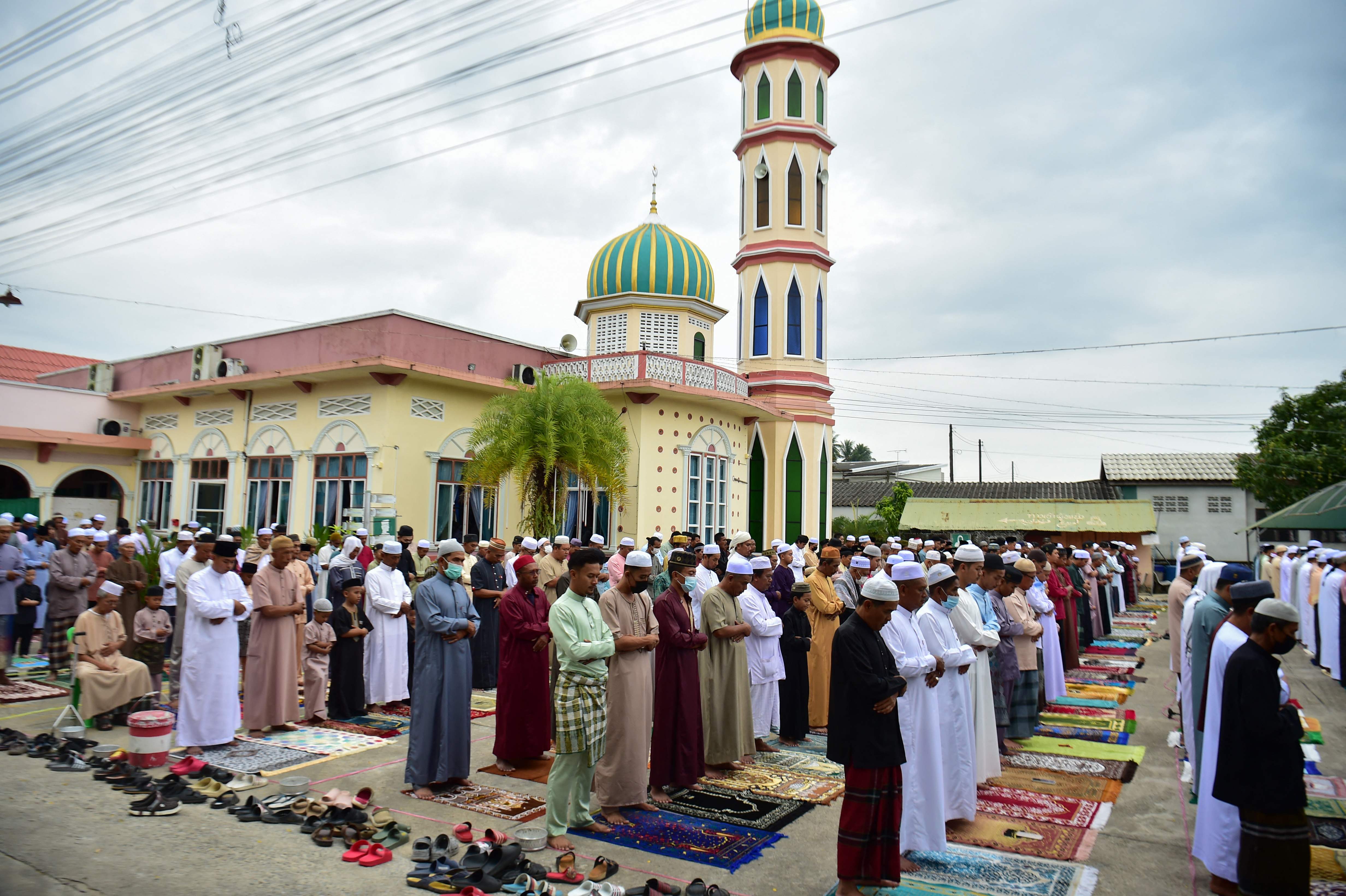
2/1.5トラック協議・政策/戦略対話
ROLESは、ヨルダン大学戦略研究センター(CSS)と協力し、ヨルダンのアンマン・アカバ・死海沿岸等を舞台にして大規模な国際会議を年に一回以上開催し、中東各地から研究者や政府高官、企業人を招き、中東の平和と安定、地域秩序の形成に日本が戦略的に関与し、議論を方向づけるためのプラットフォームを形成します。また、毎年秋にイスタンブールに各国から研究者・政府高官・企業人が集まり中東の地域情勢を分析する「イスタンブール戦略対話」を主催します。中東の有力シンクタンクと協力し、それらの機関の年次大会を東大先端研にて開催し、各国から要人・研究者・企業人を招き、中東諸国とアジェンダ・セッティングを協業します。
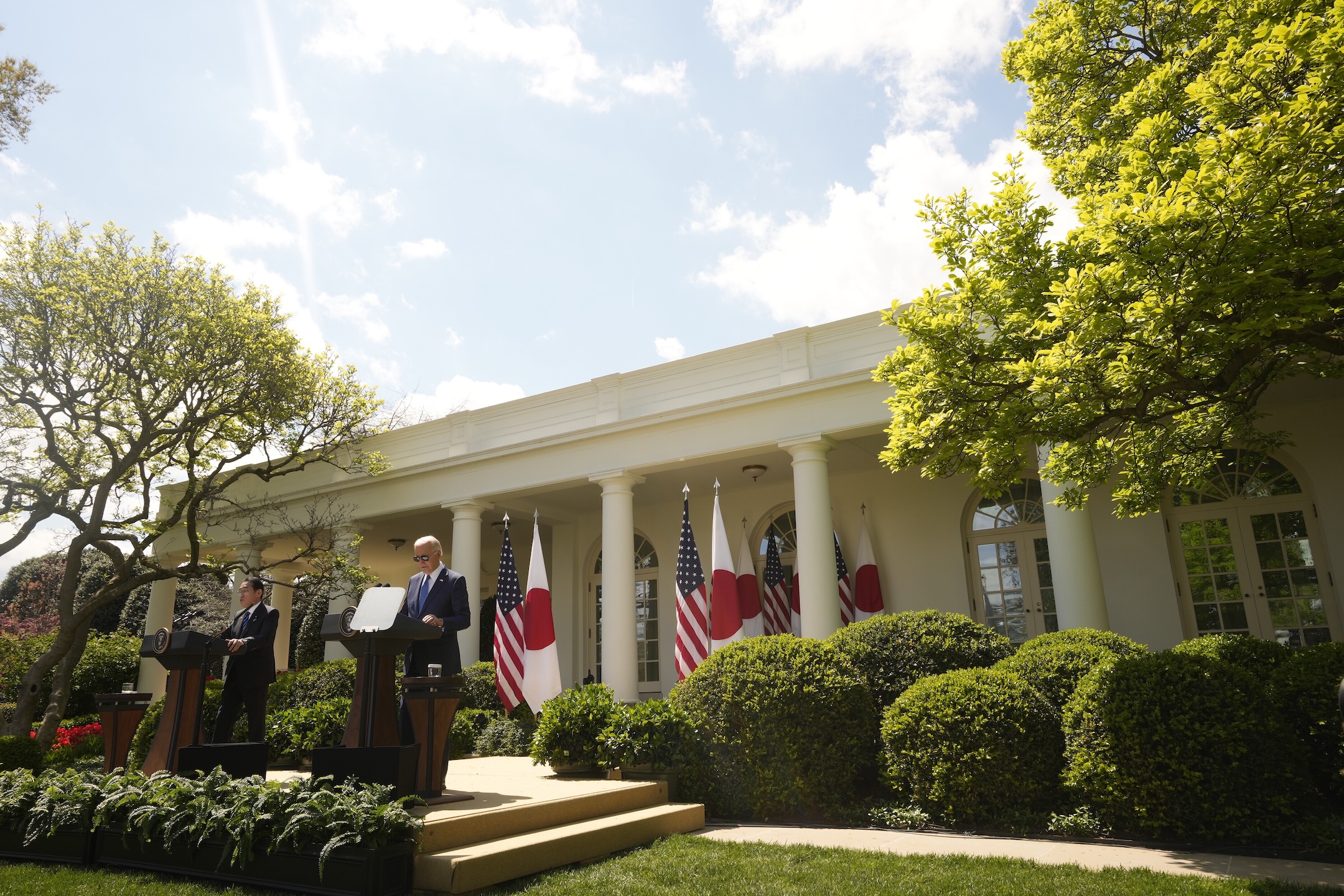
サブユニット「国際政治とリーダーシップ」
本サブユニットでは、さまざまな地域の専門家が集い、国際政治におけるリーダーシップの役割について調査・研究を進めています。特に、1970年代から80年代にかけての冷戦変容期に着目しながら、国際政治における政治的リーダーの果たす役割の意義と限界を分析することで、よりニュアンスに富んだ国際政治の理解を目指しています。
